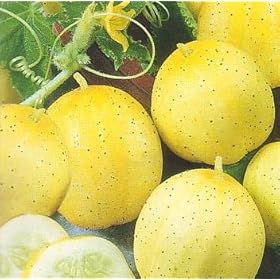June 30, 2010
Volunteers
June 28, 2010
Vegetable of the Week
 It is round and yellow, small enough to fit in the palm of my hand. It looks like a lemon with funny little spines on it. But when I slice it open, the secret is revealed: It is a cucumber! It has the transparent seeds, the cool pulp, the taste and clean smell.
It is round and yellow, small enough to fit in the palm of my hand. It looks like a lemon with funny little spines on it. But when I slice it open, the secret is revealed: It is a cucumber! It has the transparent seeds, the cool pulp, the taste and clean smell.June 25, 2010
Pesto!
June 14, 2010
Where Love Lives
The twelfth floor is where love lives. I walk down the corridor, and most rooms have open doors. Very few people are alone here. A middle-aged man is feeding a small woman with thin white hair. Another person missing a leg is gently supported as she makes her way slowly down the hall. A young mother has her almost-new baby with her as she sits with her father, the generations keeping vigil. The man’s wife comes with food made at home in the kitchen where he has cooked for her for years. Machines beep and whir and drip and count. Those who were once full of vitality have their vital signs carefully monitored. The staff is quiet, polite, efficient, responsive.
When I leave, the middle-aged man is sitting by the bed just holding the old woman's (his mother?) hand. She is quiet and so is he. The next day, the room is empty, and I think to myself that she has gone home – whatever that means. I wonder how long he stayed there with her, and I know that his love somehow lingers.
This is what love is: watching and feeding and touching and talking when there is nothing else left to do. It is not moonlight and candlelight and wine and roses. It is biopsies and bedpans, tears mixed with laughter, sadness and pain and memories and prayers. And it is all there, on the twelfth floor.
June 8, 2010
Gardening
June 6, 2010
Beulah Land!
 Last Sunday, we sang an old Southern hymn, "Dwelling in Beulah Land." You won't find it in the hymnals in the kind of churches I attend in Connecticut! The chorus has stayed with me all week:
Last Sunday, we sang an old Southern hymn, "Dwelling in Beulah Land." You won't find it in the hymnals in the kind of churches I attend in Connecticut! The chorus has stayed with me all week:I'm living on the mountain underneath a cloudless sky,I'm drinking at the fountain that never shall run dry,O yes! I'm feasting on the manna from a bountiful supplyFor I am dwelling in Beulah Land.
It is odd to think of the land being married, but the old hymn explains the meaning. It is to come to a place of abundance and joy, a place where all that is needed for life is present in overflowing measure. Maybe Beulah Land is all around us but our culture has become so soaked with fear and greed that all we see is scarcity. It is a fact that there is enough food in the world for everyone to be fed, and yet countless numbers die of starvation every day.
I was in my own Beulah Land when I sang the hymn. In the few days I was there, different people showed up with various little gifts: a cabbage freshly cut from the garden, a dozen eggs right from the chickens, potatoes and onions newly dug, squash and blueberries just picked. It was a bountiful supply of manna and we indeed had a feast, several actually!